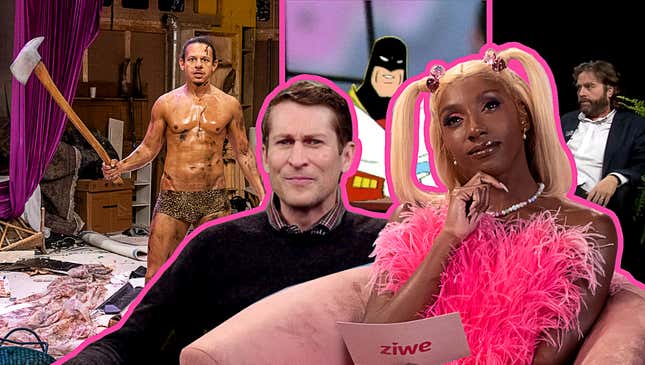
Late-night talk shows are a comfort watch. Designed to put adults to bed after our daily fill of the horror and mayhem of living a life, the form allows us to process the daily news with a light chuckle before bedtime. Luminaries like Jack Parr, Johnny Carson, and, yes, even Jimmy Fallon tuck us into bed with a couple of jokes, a few songs, and the world’s most beautiful people gabbing about their upcoming projects. If nightly talk shows are visual melatonin, anti-talk shows are visual bath salts.
A slippery genre if there ever was one, anti-talk shows are a loose amalgamation of comedies that expose and explode the tired trappings of the aforementioned format by cranking up the violence and confrontation and poisoning joke structures with irony, immaturity, silliness, or all of the above. Often, these series will parody or adapt the tropes from a sitcom, a sketch show, or an actual talk show where celebrities may or may not know what they’re getting into. Moreover, deconstruction is the name of the game, where the rules and conventions are the setups, and how those tropes can be bent and twisted is the punchline.
However, this isn’t a list of the best anti-talk shows. Instead, this is a collection of shows that defined the anti-talk show in some way or another, giving the form a new ball to play with, pushing the boundaries a little further, and expressing the generation’s exhaustion with the old guard. Some are narrative series, others are spin-offs, and one is just straight-up a real talk show. These are the series that poked holes in late-night traditions, made guests and the hosts look like crap, and amused by allowing chaos to reign. To watch an anti-talk show is to watch a performance on the edge of collapse because sometimes they do.
With The Eric Andre Show returning for a sixth season on June 4, we’re diving into the shows that brought us there, so stick around. We’ve got a great, chronologically ordered slideshow for you all. You may now flip.